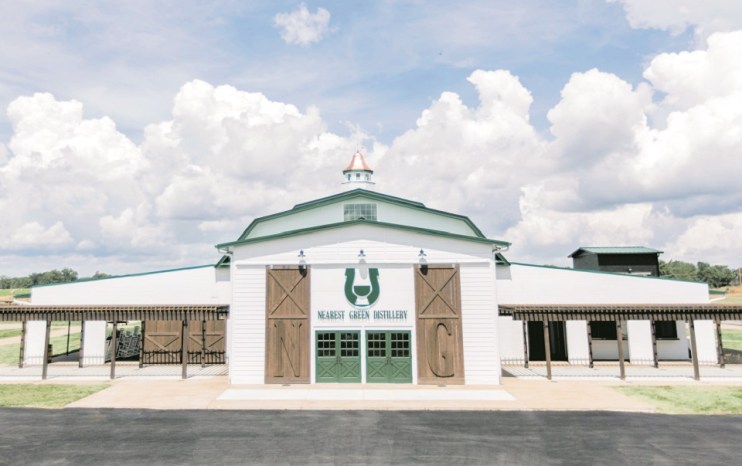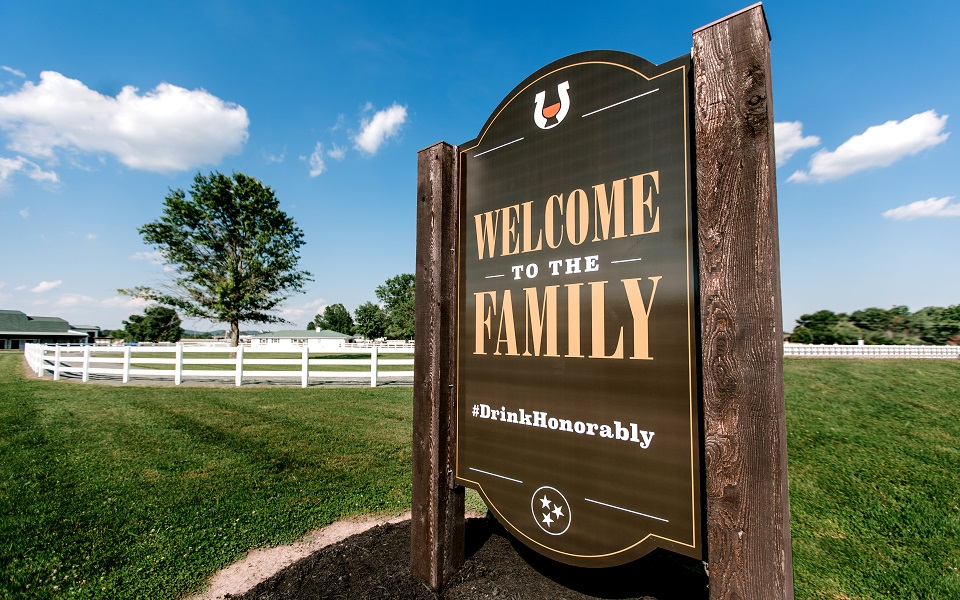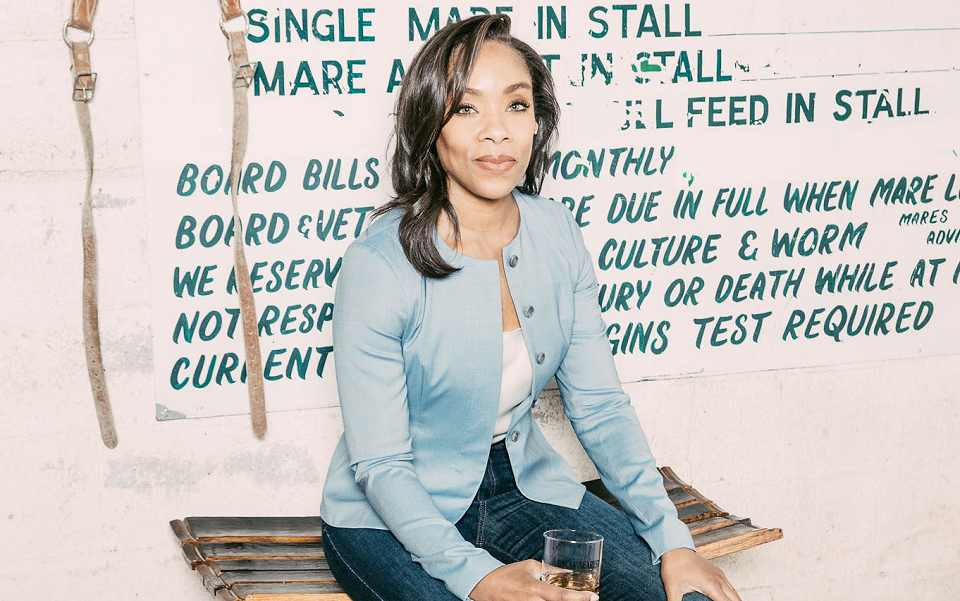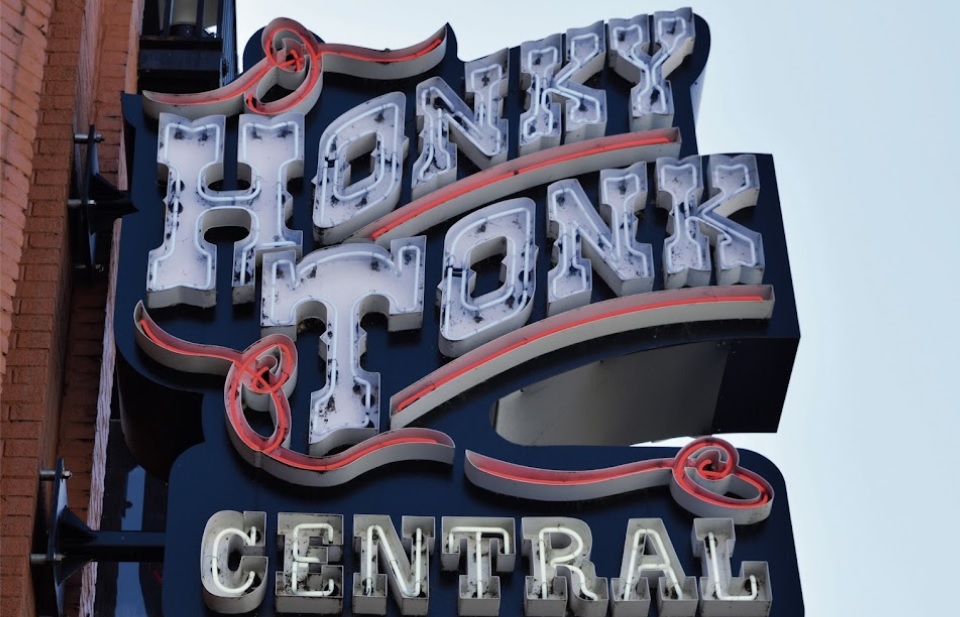Forget Jack Daniel’s: discovering the real whiskey history in Nashville Tennessee

Forget Jack Daniel’s, the real whiskey pioneer is the African-American who taught him. Josh Barrie raised a dram to a Nashville legend
He’s in a cowboy hat and has a gun at his hip and he’s giving out swigs of moonshine liquor.
This is Dan Call Farm, Shelbyville, the birthplace of Tennessee whiskey. At least the Tennessee whiskey we know today. Which is sweet and, well, kind of smooth; often entry level booze the most famous of which is found on every bar back home in Britain. As ubiquitous as a mention of Taylor Swift in Nashville, just up the road.
Listen carefully way down here in Lincoln Country and you can still almost hear the thud of boots on beer-stained wood in one of its lustrous honky-tonks. I’ll soon return to them. Dan Call Farm, though. It’s where, sometime in the mid-1800s, Jack Daniel – a name instantly recognisable to all – was taught the craft of distilling by a preacher’s slave, Nathan “Nearest” Green, America’s first African-American master distiller.
It won’t come as a surprise that Green was, until quite recently, a forgotten man. Yet he was a pioneer of the Lincoln County Process by which raw whiskey is filtered through – or steeped in – charcoal before being put in barrels for aging; he was the man who showed Daniel the way. Uncle Nearest, as he was then and remains affectionately known, was for well over 100 years consigned to misplaced archives, mismatched documents, and crumpled photographs.

This is the Deep South, after all. Only 50 miles away, in a town I won’t bother naming, is where the Ku Klux Klan was formed. Earlier, on the way out, driving south to the countryside toward the famous town of Lynchburg, I spotted a Confederate Flag. But I’m not visiting Tennessee to get caught up in racial tensions I know nothing about. What’s positive and restorative is that Uncle Nearest is remembered in the US today, mostly thanks to the work of Fawn Weaver, who in 2017 set up Uncle Nearest, a whiskey brand and one of the fastest growing companies in America.
I was determined to seek out the truth. It was a journey – finding these ancestors, these photographs.
Fawn Weaver, the African-American woman behind the Uncle Nearest distillery
Weaver, an African-American author and investor, began educating people about Green’s existence and life’s work. Over dinner in Nashville, she talks about how she set about finding Green’s ancestors, all of whom were scattered across the United States; how she compiled the legacy of a slave – emancipated after the Civil War – who lived and worked and near enough established a style of whiskey that fuels so many hangovers of the type I reel from each day I’m in Tennessee.
“I was determined to seek out the truth,” she says. “It was a journey – finding these ancestors, these photographs. There was all this history. And now it’s about honouring that legacy. It’s a positive story. I think we’re building something special.” Ten minutes’ drive from the farm, on classically open American roads, sparse save for the odd wooden, white-slated house, wearied gas stations and smile-filled restaurants, is the culmination of all this work. Now the story of Uncle Nearest is out there, we arrive at what’s next: an enormous, sweeping distillery. On hundreds of acres are barns for bottling, stables full of horses, each surveying the land, a speakeasy in a purpose-built chapel commemorating women in America winning the vote – Tennessee politicians cast the final say – a “candy” store and a gift shop.

This is a multi-billion dollar operation. No wonder Uncle Nearest is looking beyond America. And so here I am, a British journalist sipping Uncle Nearest whiskeys of various ages in a dizzying complex in Tennessee’s historic backwater. In charge of distilling is Victoria Eady Butler, a master blender and the great-great granddaughter of Nearest. The standard serve, Uncle Nearest 1884 – named after the year Nearest retired – brings orchard fruits, baked apricots, and plenty of vanilla and nutmeg. It’s a solid whiskey. The 1856 variety – the year Nearest perfected the Lincoln County Process – is more rounded still, with a complex aroma of sandalwood, caramelised nuts and mint leaves.
Eady and her team also craft rye, small batch and single barrel whiskeys, each one smooth and deserving of much admiration. Uncontroversially, the older they are, the more delicious they happen to be. The day, highly enjoyable, also happens to be a little trying, because for many hours my only form of sustenance is a sodden quiche inside a circular croissant. I have no idea where it came from, but I guess the Americans have done weirder things. I couldn’t wait to get to Nashville. That’s the enticement, isn’t it?
I dumbly order the “XXXL hot chicken.” Between mouthfuls of fried thigh, I cannot see, and later comes searing, unadulterated pain
Day one in Nashville and what do you expect? A trip out to many of its honky tonks, each a place of chaos and delirium. Frozen margaritas aren’t hard to find and in the bending cacophony of country music, blonde, cowboy-hatted hair and rhythm, hot sun-drenched days turn preposterously into dangerous nights. Everybody talks to you. Whether you’re in the mood or not. And everything is either a contest or a billowing proclamation. One man jumps towards me only to inform me that he simply loves smoking, despite the fact his wife lambasts him for it, and will rue the day he gives up – because that will be the day he dies.

Another stops me in the street to ask me if I served in the Armed Forces. Seriously. I mean just how stereotypical can America be? One woman, a nurse, takes the time to remove herself from her vehicle having spotted complications with our order at White Castle, cult thanks to a movie about getting stoned. All the while, countless diners of varying sizes tell me just how hot Nashville fried chicken happens to be. And it is. It brings on the sweats. I wonder whether all this constant insistence is some sort of warped psychology, one that if you’re told about it enough, it’s the only thing on your mind, and you dumbly order the “XXXL hot chicken” thinking everything will be fine when in fact it most certainly will not.
Between mouthfuls of fried thigh, I cannot see, and later comes searing, unadulterated pain. But it is impossible, just impossible not to love Nashville, not to love Tennessee. Because mottled throughout all this undulating blustering is a city and a state that is rightly proud. First, fine whiskey, whatever it happens to be, ideal for washing down all that fried chicken and frickles. American gastronomy misses often, but in slicing pickles finely, battering and frying them, it has performed wonders.
And the music. Above it all is the music. Nashville is a circus, brightly lit, busy, fuelled by a resplendent form of joy apparently only achieved by way of hard liquor, country music and the stomping of cowboy boots.
Visit Nashville yourself
British Airways flies direct to Nashville from London Heathrow; to learn more about the distillery and plan a visit go to unclenearest.com/distillery